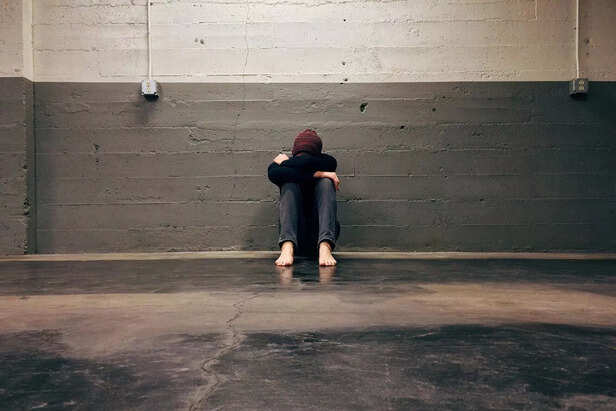How to Keep Hoping, Even When Nothing Goes Your Way – Lessons from the Bhagavad Gita
Riya Kumari | May 02, 2025, 23:59 IST
We’ve all been there, right? You’re on the rollercoaster of life, your seatbelt is half-broken, and the rollercoaster seems to have forgotten that you were supposed to have fun. So, you're sitting there, wondering if it's worth even trying to hope anymore. Like, you’ve hoped, and hoped, and hoped some more—and yet, the universe continues to treat you like an extra in a Bollywood dance number, just not important enough to show up on screen. So, what gives? Why keep hoping when everything feels so... off?
Let’s be honest: hope sounds like such a pretty word until you have to actually live by it. It’s easy to tell someone to “just stay hopeful” when you’re not the one sitting in silence after another rejection email, or when your days feel like they’re on repeat—wake up, try, fail, smile, sleep, repeat. It’s easy to believe in hope when things are working out. But the real test is: can you still hold on when nothing makes sense and the finish line keeps moving farther away? That’s exactly where the Bhagavad Gita walks in—not with a motivational quote or a glittery Pinterest graphic, but with a kind of truth that’s strong enough to hold your worst days.
1. You’re Not Meant to Control Everything—And That’s Not a Defeat

At some point, you’ve probably whispered this to yourself: “I’ve done everything right. Why is this still happening to me?” Krishna’s answer to Arjuna in the Gita is as bold as it is freeing: “You have a right to your actions—not to the results.” This isn’t a gentle pat on the back. It’s a complete shift in how we’ve been taught to live. We’re obsessed with outcomes. Grades, promotions, weddings, followers, recognition, reward. The problem is, life doesn’t always pay out immediately. Or obviously. Or fairly.
But here’s the truth the Gita offers: just because you don’t see results doesn’t mean your effort is wasted. Your growth, your strength, your character—it’s happening in the unseen. In the quiet. In the moments no one applauds. Doing your best without knowing what will come of it isn’t weakness—it’s faith. And faith, not control, is how we move forward.
2. The Absence of Proof is Not the Absence of Progress

We’ve built a culture where if you can’t prove it, it doesn’t count. You’re healing? Prove it. You’re improving? Prove it. You’re holding on? Well, you don’t look like it. But the Gita reminds us: not all growth is visible. Some of it happens in the dark. Like roots before the bloom.
Arjuna didn’t know how the war would end. He had no guarantee of survival. But Krishna didn’t offer certainty—He offered clarity: act with integrity, not with anxiety. Sometimes hope isn’t a loud, fearless shout. Sometimes it’s a quiet decision to get out of bed, to reply to that message, to apply one more time, even when your hands are tired and your heart isn’t in it. And that counts. It all counts.
3. Let Go of the Timeline. Stay Committed to the Truth

If there’s one thing the Gita keeps returning to, it’s this: truth is steady; results are unpredictable. So often, the pain isn’t just that life isn’t going our way—it’s that it’s not going our way fast enough. We’re on a deadline. We wanted to be somewhere else by now. But maybe what the Gita is really saying is: stop measuring your life with someone else’s clock.
Let go of the timeline. Let go of how quickly you think life is “supposed” to work. Instead, get anchored in your dharma—your honest effort, your values, your truth. That’s the only part of the story you ever get full control over. And truth? That stays. That builds. That protects.
4. Suffering Isn’t Always Punishment. Sometimes, It’s Preparation

This is the part no one likes hearing—but also the part we all need. The Gita never promises that the good won’t suffer. It doesn’t say that being kind, moral, or spiritual will make you immune to pain. What it does say is this: you are not your suffering. Pain will visit. But it doesn’t get to define who you are. And it certainly doesn’t mean you’re failing.
Sometimes life breaks us down not to punish us—but to prepare us for something we’re not yet able to hold. Sometimes our deepest disappointments become the very soil where resilience grows. The Gita doesn’t glorify pain. It just refuses to waste it.
5. Hope Isn’t a Feeling. It’s a Choice You Make in the Dark

Maybe the most powerful thing the Gita teaches about hope is this: hope is not passive. It’s active. It’s not something you feel when everything’s going right—it’s something you choose when everything’s going wrong. You keep hoping—not because you’re naïve, but because you’ve decided not to abandon yourself. You stay in the fight—not because you're guaranteed a win, but because walking away from who you are is a bigger loss.
In a world that tells you to chase validation, success, and happiness on a schedule, the Gita tells you something braver: be steady in your effort, even when the reward is unclear. Because maybe the point isn’t to control the outcome. Maybe it’s to become someone who can rise, rebuild, and remain—no matter the outcome.
Let It Linger:
So if you’re reading this on a hard day, when your heart feels hollow and your hope feels fake, remember: the Gita wasn’t spoken on a peaceful morning. It was spoken on the edge of war. In chaos. In despair. In the exact place where hope feels most impossible. And that’s what makes it timeless. It doesn't give you a way out. It gives you a way through.
Keep showing up. Not because it’s easy, but because you deserve to see who you become when you stop giving up on yourself. Hope, after all, isn’t about what’s happening. It’s about what you’re still choosing, even when nothing is.
1. You’re Not Meant to Control Everything—And That’s Not a Defeat

Hard work
( Image credit : Pexels )
At some point, you’ve probably whispered this to yourself: “I’ve done everything right. Why is this still happening to me?” Krishna’s answer to Arjuna in the Gita is as bold as it is freeing: “You have a right to your actions—not to the results.” This isn’t a gentle pat on the back. It’s a complete shift in how we’ve been taught to live. We’re obsessed with outcomes. Grades, promotions, weddings, followers, recognition, reward. The problem is, life doesn’t always pay out immediately. Or obviously. Or fairly.
But here’s the truth the Gita offers: just because you don’t see results doesn’t mean your effort is wasted. Your growth, your strength, your character—it’s happening in the unseen. In the quiet. In the moments no one applauds. Doing your best without knowing what will come of it isn’t weakness—it’s faith. And faith, not control, is how we move forward.
2. The Absence of Proof is Not the Absence of Progress

Success
( Image credit : Pexels )
We’ve built a culture where if you can’t prove it, it doesn’t count. You’re healing? Prove it. You’re improving? Prove it. You’re holding on? Well, you don’t look like it. But the Gita reminds us: not all growth is visible. Some of it happens in the dark. Like roots before the bloom.
Arjuna didn’t know how the war would end. He had no guarantee of survival. But Krishna didn’t offer certainty—He offered clarity: act with integrity, not with anxiety. Sometimes hope isn’t a loud, fearless shout. Sometimes it’s a quiet decision to get out of bed, to reply to that message, to apply one more time, even when your hands are tired and your heart isn’t in it. And that counts. It all counts.
3. Let Go of the Timeline. Stay Committed to the Truth

Self belief
( Image credit : Pexels )
If there’s one thing the Gita keeps returning to, it’s this: truth is steady; results are unpredictable. So often, the pain isn’t just that life isn’t going our way—it’s that it’s not going our way fast enough. We’re on a deadline. We wanted to be somewhere else by now. But maybe what the Gita is really saying is: stop measuring your life with someone else’s clock.
Let go of the timeline. Let go of how quickly you think life is “supposed” to work. Instead, get anchored in your dharma—your honest effort, your values, your truth. That’s the only part of the story you ever get full control over. And truth? That stays. That builds. That protects.
4. Suffering Isn’t Always Punishment. Sometimes, It’s Preparation

Pain
( Image credit : Pexels )
This is the part no one likes hearing—but also the part we all need. The Gita never promises that the good won’t suffer. It doesn’t say that being kind, moral, or spiritual will make you immune to pain. What it does say is this: you are not your suffering. Pain will visit. But it doesn’t get to define who you are. And it certainly doesn’t mean you’re failing.
Sometimes life breaks us down not to punish us—but to prepare us for something we’re not yet able to hold. Sometimes our deepest disappointments become the very soil where resilience grows. The Gita doesn’t glorify pain. It just refuses to waste it.
5. Hope Isn’t a Feeling. It’s a Choice You Make in the Dark

Pray
( Image credit : Pexels )
Maybe the most powerful thing the Gita teaches about hope is this: hope is not passive. It’s active. It’s not something you feel when everything’s going right—it’s something you choose when everything’s going wrong. You keep hoping—not because you’re naïve, but because you’ve decided not to abandon yourself. You stay in the fight—not because you're guaranteed a win, but because walking away from who you are is a bigger loss.
In a world that tells you to chase validation, success, and happiness on a schedule, the Gita tells you something braver: be steady in your effort, even when the reward is unclear. Because maybe the point isn’t to control the outcome. Maybe it’s to become someone who can rise, rebuild, and remain—no matter the outcome.
Let It Linger:
Keep showing up. Not because it’s easy, but because you deserve to see who you become when you stop giving up on yourself. Hope, after all, isn’t about what’s happening. It’s about what you’re still choosing, even when nothing is.
